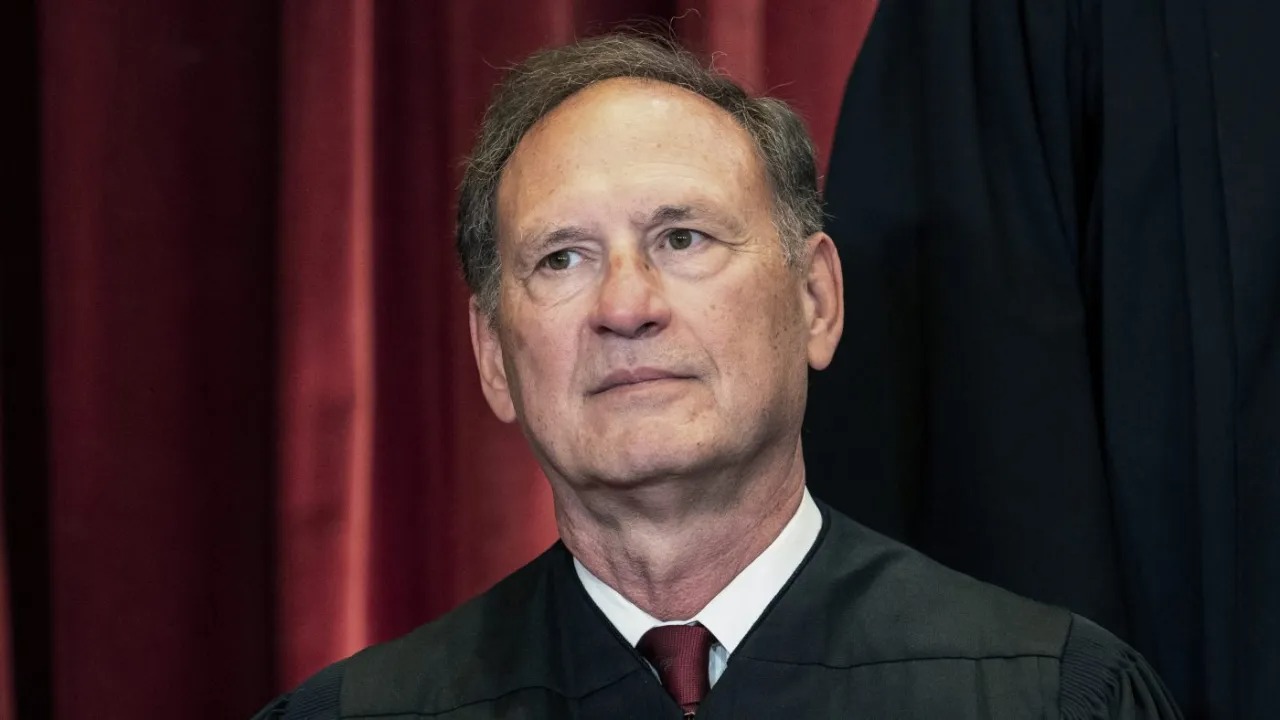Justice Samuel A. Alito Jr., a Supreme Court Justice known for his conservative stance, has once again voiced his criticisms of the landmark decision on same-sex marriage, expressing concerns about the potential consequences for individuals who hold traditional religious beliefs opposing homosexuality.
In a five-page statement accompanying the court’s rejection of a Missouri case involving the removal of jurors expressing religious objections to gay relationships, Justice Alito highlighted what he sees as dangers emanating from the court’s 2015 ruling in Obergefell v. Hodges.
This decision, which secured the right to same-sex marriage by a 5-4 vote, marked a significant victory for the gay rights movement. Justice Alito’s statement in the Missouri case suggests ongoing discontent with Obergefell, raising questions about the court’s recognition of a right not explicitly stated in the Constitution.

Justice Alito (Credits: The Hill)
According to Alito, the decision has broader implications, resulting in individuals with traditional religious beliefs about homosexual conduct being labeled as bigots and facing potential mistreatment by the government.
The Missouri case centered on jurors removed from a trial due to their religious objections to same-sex relationships. While the Supreme Court declined to hear the case, Justice Alito used the opportunity to reiterate concerns about the perceived consequences of Obergefell.
In his statement, Justice Alito argued that Americans holding traditional religious beliefs face the risk of being unfairly stigmatized and treated as bigots. He suggested that the 2015 decision cast people of goodwill as bigots and warned of potential infringements on their rights.
The broader debate around Obergefell v. Hodges revolves around the tension between LGBTQ rights and religious freedom. Supporters of Obergefell argue that it enshrines equal rights and dignity for same-sex couples, ensuring they have the same legal recognition and protections as heterosexual couples.
Critics, including Justice Alito, contend that it infringes on the religious freedom of those who oppose same-sex marriage on religious grounds. Justice Alito and Justice Clarence Thomas, both of whom dissented from the Obergefell decision in 2015, have periodically signaled their desire for the court to revisit the ruling.
They argue that the court overstepped its constitutional bounds by inventing a right to same-sex marriage. The tension highlighted by Justice Alito’s recent statement reflects a broader societal and legal debate over the intersection of LGBTQ rights, freedom of expression, and religious freedom.
While the Obergefell decision marked a significant milestone in recognizing the rights of same-sex couples, it continues to generate legal and ideological challenges that extend beyond the initial courtroom battles.
As the Supreme Court grapples with these complex issues, the nation awaits further guidance on the balance between LGBTQ rights and religious liberty in the United States.
























